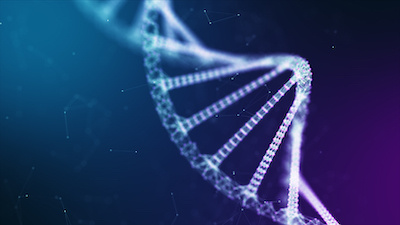 New Brunswick, N.J., November 11, 2019 – Rutgers Cancer Institute of New Jersey researcher Hossein Khiabanian, PhD, has received a $600,000 Translational Award from the V Foundation for Cancer Research to study chronic lymphocytic leukemia (CLL) with the aim of developing research models that may help investigators better understand how CLL cells are influenced by new therapies.
New Brunswick, N.J., November 11, 2019 – Rutgers Cancer Institute of New Jersey researcher Hossein Khiabanian, PhD, has received a $600,000 Translational Award from the V Foundation for Cancer Research to study chronic lymphocytic leukemia (CLL) with the aim of developing research models that may help investigators better understand how CLL cells are influenced by new therapies.
The most common leukemia in the Western world, CLL starts in the bone marrow in a type of white blood cell known as B-lymphocytes. Standard chemotherapy has been successful in treating most patients; however, it is not effective for some patients with specific DNA changes in their leukemia cells. In previous work by Dr. Khiabanian and colleagues, advanced DNA sequencing uncovered mutations that changed the function of a gene called TP53. These mutations could be detected in only a few leukemia cells at initial CLL diagnosis, but would be present in a majority of cells in patients whose CLL returned after treatment with chemotherapy.
“To treat such high-risk patients, new drugs have been developed that disrupt processes used by leukemia cells to interact with their environment. One of these drugs, which has shown significant activity in CLL, is ibrutinib. Similar to resistance against chemotherapy, some cells may have alterations that stop this drug from working. As a result, these cells are not killed and can result in the recurrence of CLL. As such, there is a need to better understand these mutations as well as changes in gene expression so that better treatment strategies can be developed.” notes Khiabanian, who is part of Rutgers Cancer Institute’s Genome Instability and Cancer Genetics Research Program and an assistant professor of pathology and laboratory medicine at Rutgers Robert Wood Johnson Medical School.
He adds, “I am grateful for the V Foundation for Cancer Research in its support of this project, which is in line with our lab’s goal of designing experimental and computational methods that help characterize molecular diversity in small population of cells early in their evolution and transformation.”
In this project, the Khiabanian lab will work with the Institute of Oncology Research (Bellinzona, Switzerland) as well as Rutgers Cancer Institute of New Jersey’s Hematologic Malignancies Program to analyze patient samples collected during treatment in a clinical trial. Highly sensitive experimental approaches will be applied to thousands of single leukemia cells to develop models that may help describe how CLL cells behave and change under new therapies.
The project period runs through October 2022.
About Rutgers Cancer Institute of New Jersey
As New Jersey’s only National Cancer Institute-designated Comprehensive Cancer Center, Rutgers Cancer Institute, along with its partner RWJBarnabas Health, offers the most advanced cancer treatment options including bone marrow transplantation, proton therapy, CAR T-cell therapy and complex robotic surgery. Along with clinical trials and novel therapeutics such as precision medicine and immunotherapy – many of which are not widely available – patients have access to these cutting-edge therapies at Rutgers Cancer Institute of New Jersey in New Brunswick, Rutgers Cancer Institute of New Jersey at University Hospital in Newark, as well as through RWJBarnabas Health facilities.
Along with world-class treatment, which is often fueled by on-site research conducted in Rutgers Cancer Institute laboratories, patients and their families also can seek cancer preventative services and education resources throughout the Rutgers Cancer Institute and RWJBarnabas Health footprint statewide. To make a tax-deductible gift to support the Cancer Institute of New Jersey, call 848-932-8013 or visit www.cinj.org/giving.
###
For journalists – contact:
Michele Fisher, Public Relations Manager
732-235-9872
michele.fisher@rutgers.edu
For patient appointments/inquiries – contact:
844-CANCER-NJ (844-226-2376)

